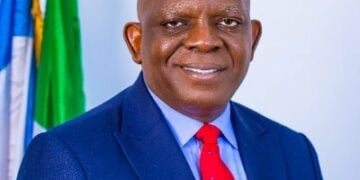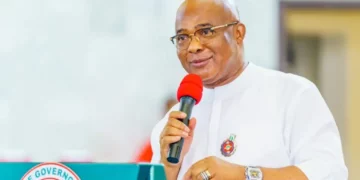Incidences of building collapse and other unwholesome practices bedevilling the real estate sector in Nigeria have been blamed on the weak regulatory systems and quackery usurping the roles of professionals.
This was the crux of the 104th in the series of inaugural lectures of the University of Uyo (UNIUYO), held at the 1,000-capacity hall of the main campus, Nwaniba, Uyo, the state capital.
In the lecture entitled, “Real Estate Investment Decision: The Appraisal Pedagogy,” Prof Francis Udoudoh of the Department of Estate Management lamented over irregular and unprofessional decisions that have led to crises in the sector, blaming it on key factors including lack of proper consultations and appraisals before investment.
He noted that why the real estate sector investment thrives in developed economies, same cannot be achieved in developing countries like Nigeria because of lack of proper appraisal, noting that such haphazard disposition has made the sector unattractive for investors.
Udoudoh said: “There’s a growing concern with respect to reliability, consistency and rationality of undertaking investment appraisals for real estate investment.
In the developed economy, majority of projects are subjected to investment appraisals to determine if the proposed project could /or should be carried out.
“Over there, the conduct of appraisal is a prime requirement by regulatory authorities before approval and execution of any project, particularly those that would gulp huge sums of money.
“The opposite is the case in Nigeria as only a handful of projects are subjected to investment appraisals before execution.
“The consequences are abundant uncompleted projects and collapsed structures that littered major streets in Nigeria’s urban centres.”
To curb this menace in the building sector, the professor tasked governments at all levels, corporate institutions, private organisations and individuals to “seek professional services of qualified estate surveyors and valuers to prepare feasibility and/ or viability appraisal reports of projects prior to their expectation.”
The vice chancellor, Prof Nyaudoh Ndaeyo, who presided over the lecture, gave the lecturer a pass mark in his scholarly presentation and formally inducted him into the council of inaugural lecturers of the institution.




